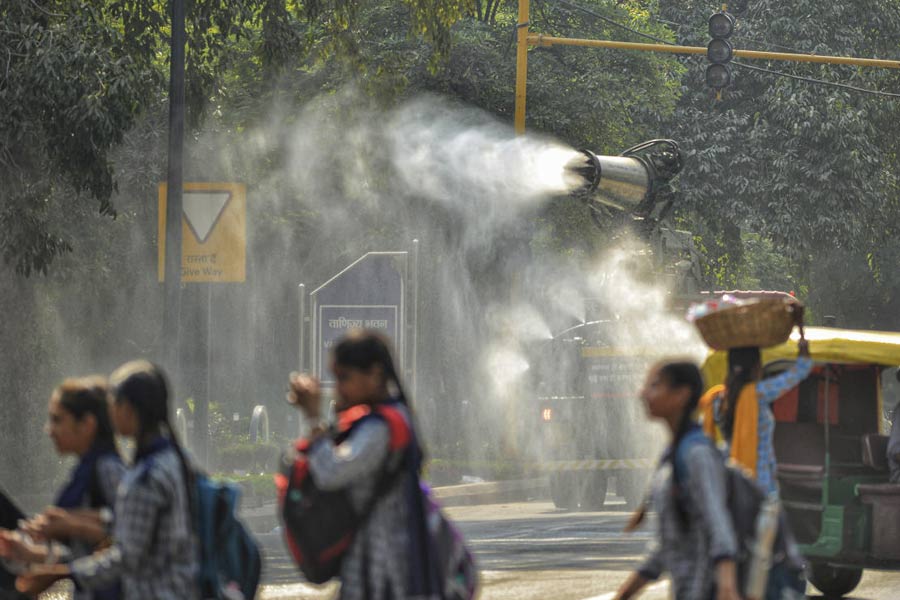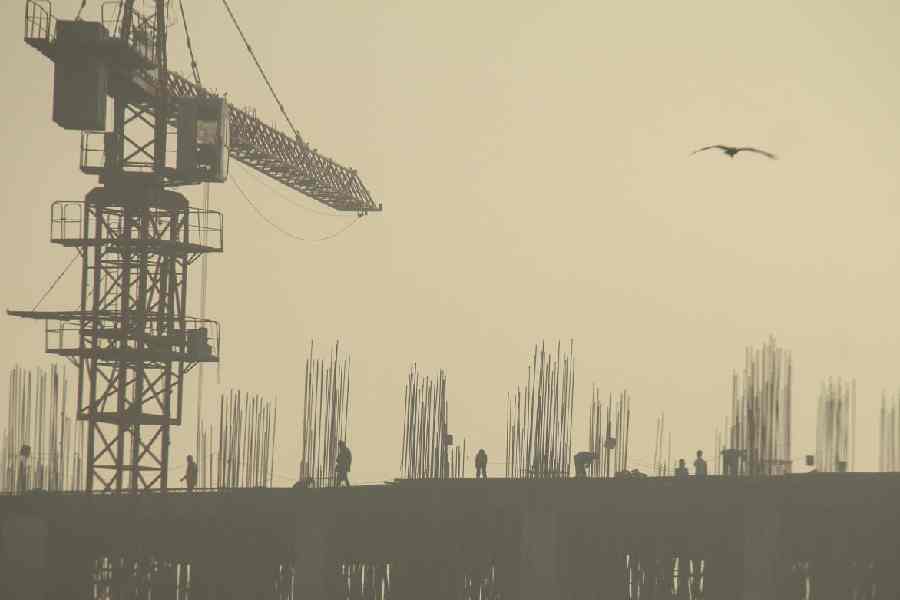Maryam Nawaz Sharif, the chief minister of Pakistan’s Punjab state, is stepping up her calls for cooperation between India and Pakistan to clear the blanket of smoky smog that has made both Delhi and Lahore two of the world’s most polluted cities.
Speaking at a Diwali event in Lahore, Sharif voiced her determination to clear the air between the two countries.
“We need to have diplomacy with India regarding the issue of smog in Lahore,” she stated. She said she was considering “writing a letter to Punjab chief minister [Bhagwant Mann] in India that this is not just a political issue; this is a humanitarian issue”.
The Air Quality Index (AQI) in Lahore briefly touched a stratospherically bad 708 points on Monday night. But on Wednesday evening, the AQI over both cities was dismally bad, with the reading at Delhi’s Pusa Road at 311, which was well into hazardous levels. In suburban Dwarka, it was a supremely unhealthy 586.
Lahore, meanwhile, was more or less in the same league as Delhi. The wind, in early October, was blowing from India to Pakistan, but over the last few days, it has shifted direction and is gusting from Pakistan to India.
The pollution from across the border has combined with the Diwali cracker-bursting festivities to form a dangerously toxic mix.
Sharif joked about the weather patterns, remarking to the audience: “The winds don’t know there’s a border in the middle.” But then, she added firmly that “until both Punjabs come together, we won’t be able to tackle the issue of smog.”
The Pakistan Punjab chief minister was building on remarks she made earlier in October calling for the longtime foes to engage in creative “climate diplomacy”.
Geospatial maps created based on images retrieved from Nasa show that in the week of October 16 to October 23, significantly more fires were lit, mostly by farmers, in Pakistan Punjab compared to India.
The images also suggest that many of these fires were lit at night, likely to evade police and law enforcement.
While even the Pakistanis say that India has cracked down more firmly on crop stubble burning, Pakistan is also making efforts to bring it down. Indian experts believe that cooperation might open various avenues for reducing stubble burning. One possibility is that the two sides might stagger sowing times so that farmers harvest at slightly different times.
Lahore is not the only city in Pakistan Punjab struggling to cope with acute pollution levels.
Two other bustling cities, Gujranwala and Faisalabad, serve as industrial hubs in the region. They suffer from a toxic mix of what one study described as “crop burning, over-enthusiastic industrialization, and urbanization”.
Besides that, other major factors include the huge number of vehicles on the road, brick kilns, and deforestation.
Notably, Sharif’s speech contained several hints that she, like her father, former prime minister Nawaz Sharif, would like to boost relations with India and was in favour of a more sympathetic attitude toward minorities in Pakistan.
“Until both Punjabs come together, we won’t be able to tackle the issue of smog,” she said.
She announced a “minorities allowance” for impoverished minorities and said that to start with, 50,000 non-Muslims would receive these allowances. Many of Pakistan’s minorities, particularly the Hindus, are stuck at the lowest levels of society and face barriers to rising higher.
Even more importantly, the chief minister announced measures to ensure the safety of non-Muslims, many of whom have faced harassment in recent years.
“In the recent past, there have been incidents with minorities that have made my head hang in shame, and it has caused me great pain to see trivial misunderstandings become full-blown fights,” she told the audience.
Sharif also announced a police helpline specifically for minorities that they can call in case they feel unsafe.
“Because there are few minorities, it is our responsibility to provide a safe Pakistan, a safe Punjab for them so that they can stay in their houses safely, without any fear of danger, and that they feel that this is their country and they have every right to be here,” she said.












